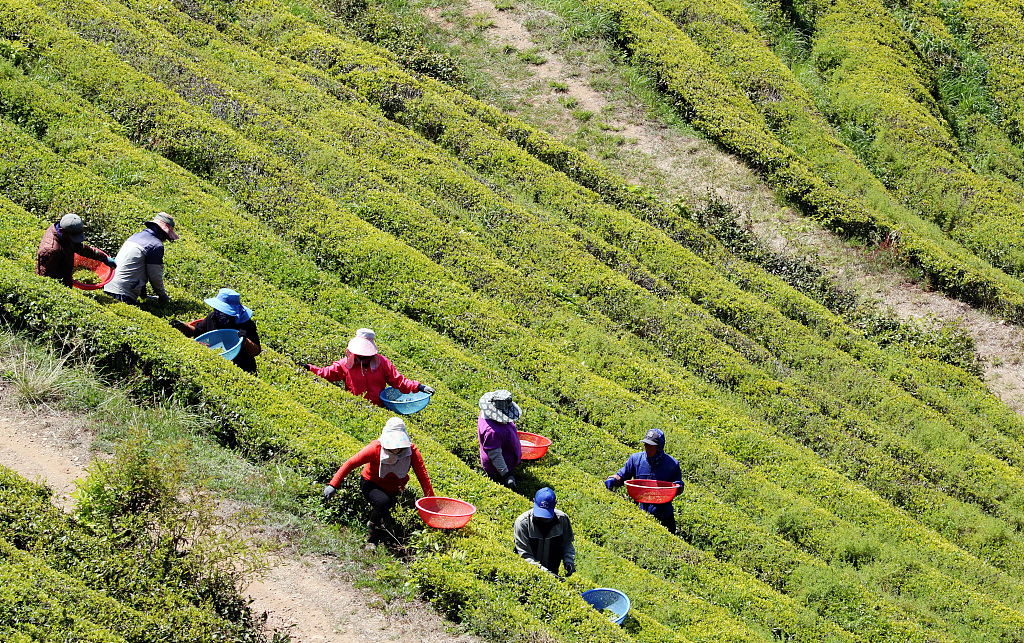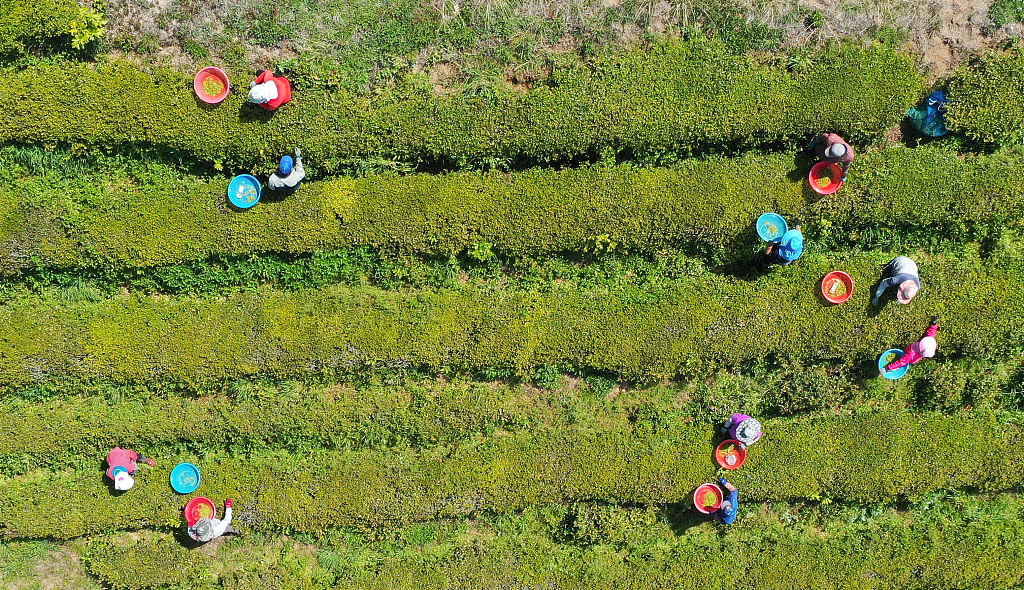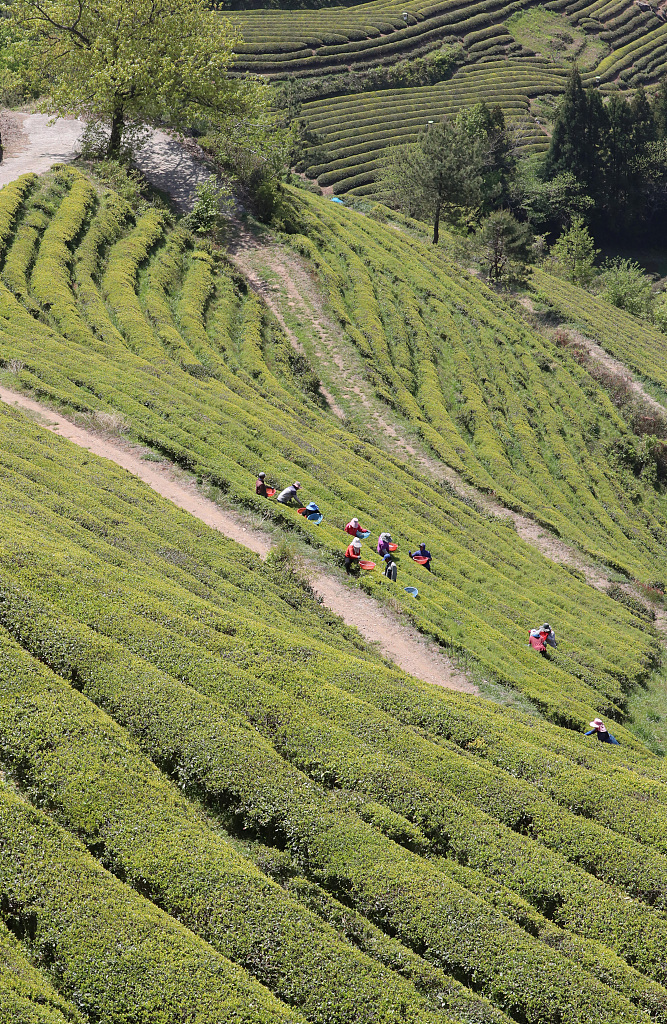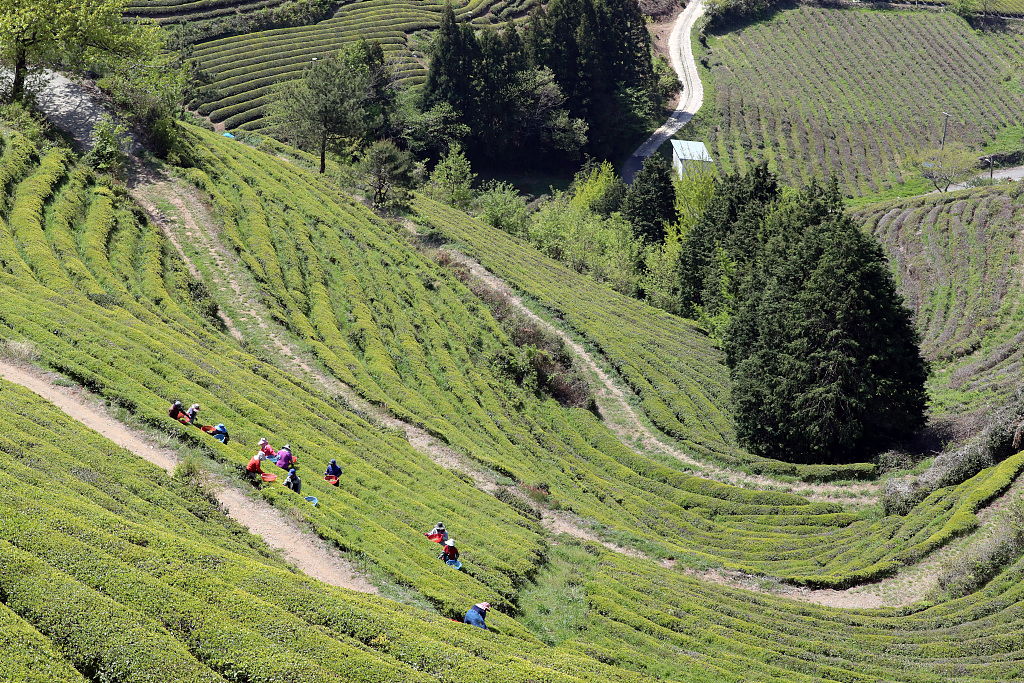
Tea farmers are busy harvesting green tea in a tea plantation in Boryeong County, Jeolla Province, South Korea on April 20, 2021. /CFP
Tea farmers are busy harvesting green tea in a tea plantation in Boryeong County, Jeolla Province, South Korea on April 20, 2021. /CFP

Tea farmers are busy harvesting green tea in a tea plantation in Boryeong County, Jeolla Province, South Korea on April 20, 2021. /CFP
Tea farmers are busy harvesting green tea in a tea plantation in Boryeong County, Jeolla Province, South Korea on April 20, 2021. /CFP

Tea farmers are busy harvesting green tea in a tea plantation in Boryeong County, Jeolla Province, South Korea on April 20, 2021. /CFP
Tea farmers are busy harvesting green tea in a tea plantation in Boryeong County, Jeolla Province, South Korea on April 20, 2021. /CFP

Tea farmers are busy harvesting green tea in a tea plantation in Boryeong County, Jeolla Province, South Korea on April 20, 2021. /CFP
Tea farmers are busy harvesting green tea in a tea plantation in Boryeong County, Jeolla Province, South Korea on April 20, 2021. /CFP
Tea cultivation in Korea originated during China's Three Kingdoms period (220-280), and it flourished throughout history. Last November, China's traditional tea processing techniques and associated social practices were included in UNESCO's Representative List of the Intangible Cultural Heritage of Humanity.
To better promote and disseminate Chinese tea culture, actively showcase its rich connotations, and protect the achievements of its inheritance and practice, the Chinese Cultural Center in Seoul has launched events to observe this year's International Tea Day, which falls on May 21.